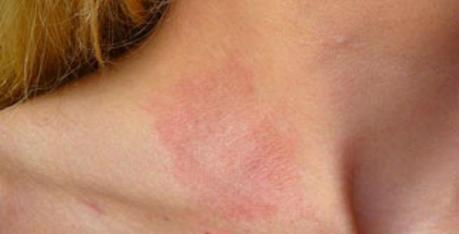Hydroquinone is a skin-lightening chemical compound that is widely used in the over-the-counter medications and creams intended for scar treatments and several other skin issues. It basically limits the production of melanin (pigment) in our cells, thereby reducing the appearance of scars, marks or spots. But recent studies have found hydroquinone to be potentially dangerous for human being. Want to know why? Go through rest of the piece:

1. It is Highly Toxic
When it comes to the dangers of using hydroquinone, toxicity should be the first and foremost factor to consider. It contains lots of toxic materials and that too in high concentrations. Scientists have shown that high dosage of oral hydroquinone can take a toll on our health by causing cyanosis, a medical condition in which the supply of oxygen to our bloodstream goes down and hence, our skin turns bluish. Toxicity of hydroquinone can also cause issues like frequent seizures, nausea, ringing of the ears, etc. The chemical compound is also known to comprise a high level of mercury which, being one of the most toxic metals, can damage our liver and lead us to a disrupted well-being.
Also Read – 10 Useful Tips to Repair Bleached Damaged Hair Fast Here
2. It Causes Ochronosis
Even though hydroquinone is used to fade away unwanted scars, marks and hyperpigmentation, long-term use of it can actually yield the effects that are totally opposite of what you are expecting. According to experts, the chemical can cause a certain skin condition called ‘ochronosis’ in which the appearance of the skin gets completely spoiled due to disfiguration. Dark-skinned people are more prone to this problem and some of its common symptoms include thickening of skin, blue-black discoloration of skin, darkening of skin due to augmented pigmentation, development of dark or gray-brown spots as well as yellow-brown bumps, deterioration of scars, and so on.
3. It Increases Photosensitivity
Topical application of hydroquinone can make our skin extremely ‘photosensitive’. It lowers the amount of melanin pigments in our cells, which increases the sensitivity of our skin to the ultraviolet rays (UVA and UVB) of the sun. Hence, if you expose your regular or already UV-affected skin to the sunlight, sunlamps or tanning beds right after applying this bleaching cream to your skin, you may experience severe sunburns, acute pain, windburns, irritation, chapping, hyperpigementation, and worsening of scars. Some of these effects can be permanent, while others are directly linked to various health risks.

4. It has Allergic Reactions
Regular usage of hydroquinone can cause minor to major allergic reactions. People, who are allergic to the chemical, have been reported with symptoms like tingling or burning sensation, feel of stinging, hives, irritation, redness, breathing shortness, swelling of face, mouth and throat, contact dermatitis, thick rubbery skin with lots of bumps, etc. You may even need to seek emergency helps in such situations.
Also Read – 5 Homemade Facial Bleach Recipes Here
5. It is Carcinogenic
Several researches have proved that hydroquinone possesses a number of carcinogenic properties. Prolonged usage of large amount of the chemical can cause cancer (leukemia), which is absolutely fatal for us. Though it is yet to be clearly known how hydroquinone is linked to cancer, it has been found that it has potential to alter as well as damage the structure of DNA within our cells, which may result into mutations. However, studies are still going on, on this matter.
Image Credit – Featured, 1, 2
